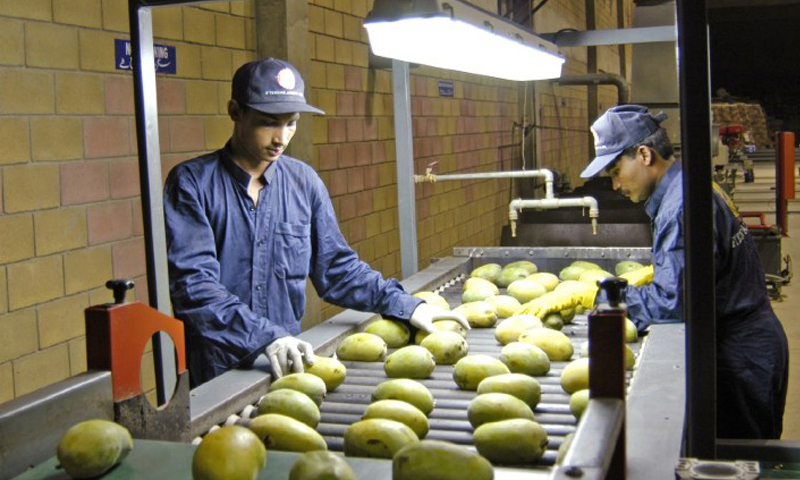Hyderabad: Chinese quarantine officials visited hot water treatment (HWT) plants at three different mango orchards in lower Sindh on Monday to assess the quality of these facilities as part of a nationwide inspection drive.
A two-member Chinese officials delegation accompanied by the representatives of the Department of Plant Protection (DPP) and the Trade Development Authority of Pakistan (TDAP) visited Mustafa Farm of Ghulam Sarwar Abro, a global GAP (good agricultural practices) certified farmer in Thatta district, Hyder Shah Fruit Farm of Junaid Hyder Shah in Tando Allahyar, and Ameer Hamza Farm of Dr Aftab Shah in Shaikh Bhirkio.
Hot water treatment is used to control fruit flies. During the treatment, a fruit is immersed in hot water for a specific time and temperature of water is maintained at a specific level. Duration of fruit immersion and water treatment is decided according to the target (disease or insect/pest).
“China allowed exports of Pakistani citrus and mangoes in 2005 after approving cold and HWT facilities. Now they are inspecting a few more HWT facilities,” said a DPP official.
He said they would submit their findings about 14 HWT facilities, including three in lower Sindh, four in Karachi, three in Lahore and four in Multan. Facilities in Punjab have already been inspected. These HWT and cold treatment plants were bound to increase exports of citrus and mangoes, he added.
Mr Abro offers HWT facilities on a commercial basis to other farmers and exporters for export purposes. In his plant set up last year, three tonnes of mangoes could be processed for HWT for an hour. At this facility, mangoes could go through HWT for 60 to 90 minutes that is required by many countries including China, Australia and South Korea.
He and his friends also formed the Sindh Mango Growers and Exporters (SMGE), which is exporting mangoes to England and European countries. “We have so far sent 70 tonnes of mangoes through SMGE to UK. I independently sent three tonnes to Sweden and 15 tonnes to Iran,” he said.
Five SMGE shipments having 15 tonnes of mangoes were bound for Europe by air, he said. He certified HWT for other commercial consignment besides packaging on a commercial basis.
“We are writing to TDAP to also allow Australian quarantine officials in the same manner so that they can inspect farmers’ pack houses and HWT facilities”, said Mahmood Nawaz Shah of the SMGE.
“Developed countries strictly ensure that fruits being imported are free of fruit fly and pest, and that’s why these facilities are established,” he said.
The DPP asks exporters to voluntarily ensure HWT for consignments bound for UK and Europe to avoid interception.






